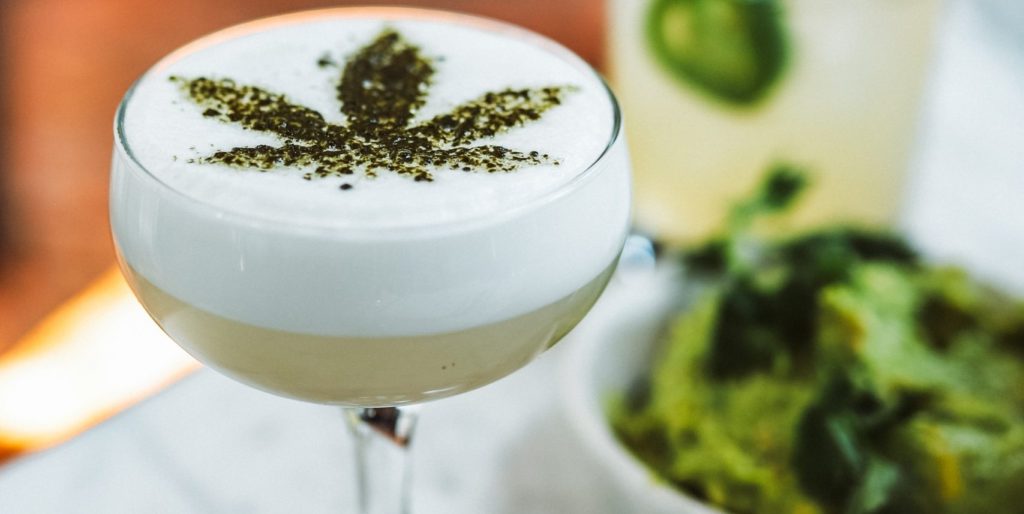- Trademarks Act not meant to protect Canadian sensibilities - April 25, 2024
- U.S. lawmakers tee up copyright protection for golf courses - March 6, 2024
- Remain vigilant over your licensees in trademark agreements - January 22, 2024
By LegalMatters Staff • A recent Federal Court ruling affirming the trademark rights of Toys R Us is a “textbook example” of a depreciation of goodwill case, says Toronto intellectual property lawyer John Simpson.
Justice Nicholas McHaffie found that B.C. cannabis dispensary Herbs R Us Wellness Society had infringed the trademark rights of Toys R Us under section 22 of the Trademarks Act (TMA) by using a logo derivative of the well-known Toys R Us logo.
Section 22 of the TMA says that no person shall use another person’s registered trademark “in a manner that is likely to have the effect of depreciating the value of the goodwill attaching thereto.” The provision can be infringed even where customers are unlikely to be believe that the infringer is associated with the owner of the registered trademark.
Judge awards $30,000
The judge awarded $30,000 in damages and legal costs and ordered the “destruction of goods, packaging, labels and advertising material that bear the Herbs R Us trademark in any form.”
Simpson, principal of IP and new media law boutique Shift Law Professional Corporation, says there are few examples of successful section 22 claims in recent memory, noting that Herbs R Us declined to enter a defence.
“You could hardly think of a better example of a section 22 case,” he tells LegalMattersCanada.ca. “But it would have been nice to see how thoughtful arguments and survey evidence presented by good trademark counsel for the respondent might have affected the judge’s analysis, if not his ultimate decision.”
Toys R Us claimed that the Herbs’ green logo with a cannabis leaf in the middle of a backward “R” uses a similar font to its logo. In addition to its section 22 claim, the toy retailer had also attempted to prove trademark infringement contrary to section 20 of the TMA and passing off under subsection 7(b).
‘Pronounced differences’
The judge rejected the latter two claims, writing “Although the similarities between the trademarks are evident, the pronounced differences between the goods and services of Herbs R Us and those of Toys R Us are such that I cannot conclude that a consumer — even a casual one somewhat in a hurry with an imperfect recollection of the Toys R Us marks — would infer that they were manufactured, sold or performed by the same person.”
Simpson says the decision illustrates the kind of situation that Parliament intended to address when section 22 was introduced.
- Google adds more ammo in fight against online counterfeiting
- Legislation will provide long-awaited protection for trade secrets
“This is a perfect example of where there’s a clear reference to an existing registered mark and an obvious mental association but no likelihood that anyone is going to be confused” he says. “Parliament wanted to provide a remedy for this kind of mischief which does not exist under the more typical form of trademark infringement, where consumers are deceived or confused by the defendant’s actions.”
Simpson notes that the same factor that eliminated any risk of confusion in this case also led to the depreciation of goodwill. “The fact that the defendant was using a family-friendly, child-friendly trademark to sell drugs made confusion unlikely. But that’s also precisely what was tarnishing the goodwill in the plaintiff’s trademark,” he says.
Simpson explains that sullying a trademark is not the only way to depreciate the goodwill in it.
‘Form of depreciation’
“If everyone out there started using their own version of an ‘R Us’ business name, that kind of brand dilution is also a form of depreciation,” he says.
Simpson says he wonders how the case might have turned out if Herbs R Us had defended the claim. “In the hands of capable defence counsel, they might have come up with some compelling arguments,” he says. “For example, many people might think the logo is in good humour such that it doesn’t hurt the goodwill of Toys R Us.
“Trademark law is all about what the average consumer thinks. So survey evidence can be very powerful,” Simpson adds. “A survey might have shown that Herbs R Us reminded average consumers that Toys R Us is still a relevant brand and, in that way, enhanced its value rather than depreciated it.”
He says the case is a good reminder to businesses to register their trademarks. “It reinforces the importance of registering your trademark because only the owner of a registered trademark can rely on section 22.”

